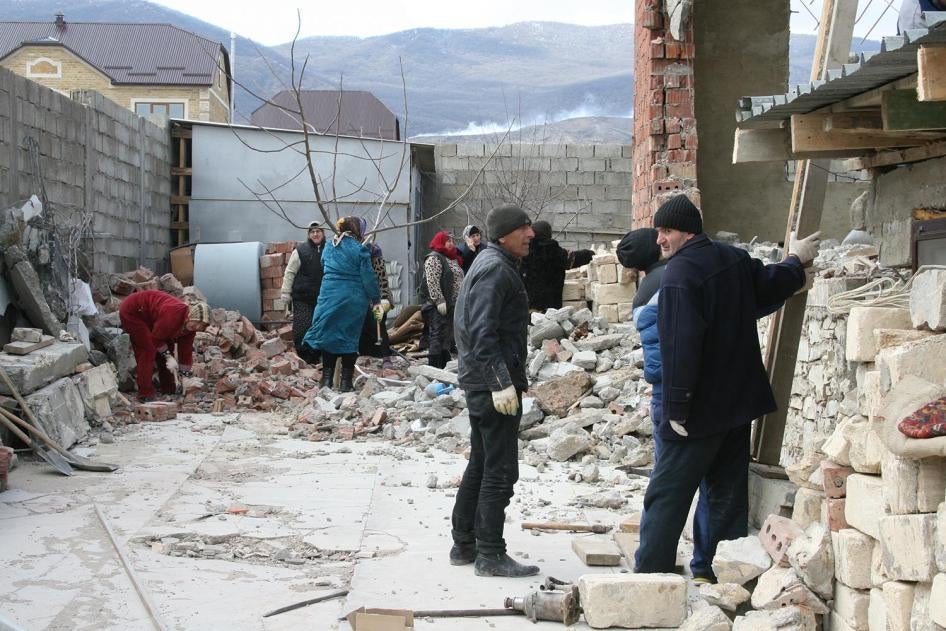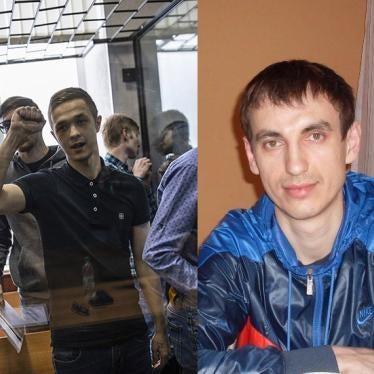Justice is finally coming to the small, remote village of Vremenny, located in Dagestan, the largest and arguably the most complex region of Russia’s Northern Caucasus. The residents there are finally being compensated after an abusive 2014 counterterrorism operation practically destroyed the village.
We documented the crackdown on Salafi Muslims in Vremenny and elsewhere in Dagestan, detailing the abusive counterinsurgency operations by Russian law enforcement and security officials, and in the summer 2015 published the findings in our report, “Invisible War.”
The report includes a sub-section on the destruction of Vremenny, which had a population of about 1,000. Security forces blocked the village, and in September 2014, rounded up all the villagers for identification checks, ransacked the houses, abducted four men, expelled practically the entire adult male population, and two weeks later forced the remaining women and children to leave. When residents were finally allowed to return two months later, they realized there was nothing to return to: Their livelihood was destroyed.
At least ten houses in the village had been blown up and razed to the ground and an additional 40 houses had been rendered uninhabitable. Every house in the village suffered some degree of damage, as the security forces apparently looted almost everything of any value, including refrigerators, televisions, kitchen equipment, and carpets. They also chopped up furniture, threw clothes, pots, pans, and other household items into the mud, and covered walls of the houses with offensive signs and drawings.
By the end of 2019, after a long legal battle, 570 residents of Vremenny received compensation for material damages inflicted by the counterinsurgency operation. Another 60 will receive compensation early this year. In total, the government will pay out 53 million rubles (close to US$869,000) in compensation.
Our partners from Memorial, a leading Russian rights group, did the tough, essential work of providing legal aid to the victims and standing by them all these years, including in courts. Our published research, reports, and articles and persistent advocacy played an important role in raising awareness about the plight of Vremenny and convincing the government that it should give local residents financial compensation.











